Frequently Asked Questions
Our most asked questions about estate planning, probate, trusts, and more!
Frequently Asked Questions
-
WHAT CAN A CERTIFIED SPECIALIST DO FOR YOU?
A certified specialist can bring value to a client’s case by the quality of representation. Attorneys only achieve a certified specialist designation after passing a one-day examination solely in their specialized area of law (this is above and beyond the Bar Exam, which tests 14 subjects over 2 days), demonstrating a high level of experience in their specialized area of law, fulfilling continuing education requirements in their specialized area of law, and receiving favorable evaluations by colleague attorneys and judges familiar with their work. Certified specialists must maintain their proficiency and stay current with the law through onerous continuing education (above and beyond the number of credits required by nonspecialist attorneys).
-
WHO SHOULD HAVE AN ESTATE PLAN?
There are many reasons you should have an estate plan. At a minimum, you should have an estate plan if the gross value of your assets exceed $166,250, if you own real estate, if you own a business, if you have minor children, if you have a family member with special needs, if you are a blended family, if you are sick or elderly, or if you want to disinherit a family member. If you are 18 years or older, at a minimum, you should have a simple will, a durable power of attorney for assets, and an advance health care directive.
-
WHAT IS PROBATE?
Probate is a judicial process by which a court ensures that when you die, your debts and taxes are paid, your property is distributed, and title is passed to the proper beneficiaries. The probate court also can take control over your person and your assets in the event of your incapacity (this is called a conservatorship or guardianship or "living probate").
-
HOW WILL I KNOW IF MY ESTATE IS SUBJECT TO PROBATE?
Under current California law, if the gross (not net) value of a deceased person's California real property and personal property exceeds $208,850 for deaths on/after April 1,2025,that estate will be subject to probate proceedings. (Personal property in an estate can be collected by a small estate affidavit if the estate does not exceed $166,250 for deaths before April 1, 2022, and for deaths on/after April 1, 2022, and before April 1,2025, that threshold amount is $184,500.) There are certain types of property, however, that are excluded in determining the gross value of an estate:
The maximum value of real property that can be transferred by Affidavit re Property of Small Value is $61,500 for deaths on/after April 1, 2022. For deaths occurring on or after April 1, 2025, the amount of real property in an estate that can pass without a formal probate pursuant to a Petition to Determine Succession to Real Property if it was the decedent’s primary residence is $750,000. All other real property that exceeds $61,500 will be subject to probate. Additionally, if you own real property outside of California, you may need to open ancillary probate in each state where such property is located.
-
ARE ALL ASSETS SUBJECT TO PROBATE?
No. Various types of "will substitutes" exist that avoid probate. These include joint tenancy, community property, and the living trust, discussed below. Additional types of will substitutes are those with named beneficiaries, such as life insurance policies, annuities, retirement accounts, pay-on-death (P.O.D.) accounts, transfer-on-death (T.O.D.) accounts, and transfer-on-death (aka "beneficiary") deeds.
-
WHY DO I WANT TO AVOID PROBATE?
- Time-Probate is a time-consuming process, averaging anywhere from 18 to 24 months or longer, depending upon the complexity of the estate.
- Cost-Probate is a costly legal process, with the average cost ranging between 7-15% of the gross value of your estate, again depending upon the complexity of the estate. Additionally, probate costs (i.e. filing fees, publications fees, etc.) average around $2000.
- Lack of privacy-Probate, like most other judicial proceedings, is a public process, thus inviting will contests and unscrupulous solicitation.
- Emotional distress-Probate is a frustrating and anxiety-provoking legal ordeal and occurs at one of the worst times imaginable-during the grieving process.
-
IF I HAVE A WILL, CAN I AVOID PROBATE?
No! A will does not avoid probate; rather, it is an invitation to probate, as the court first must validate your will before enforcing it.
-
WHAT HAPPENS IF I DO NOT HAVE A WILL?
If you die without a will, which is called dying intestate, you will not avoid probate. Rather, you will be subject to the California statutes of descent and distribution, which is a "default" statutory will. These statutes set forth a priority of succession, which may not be consistent with your wishes. Additionally, your personal representative will be required to post a bond, which can be very costly, and will be subject to more onerous court supervision during the probate process.
-
DOES JOINT TENANCY AVOID PROBATE?
No. Holding title to property as joint tenants merely delays probate. Additionally, there are many other disadvantages related to holding property in joint tenancy, such as loss of control, capital gains tax, and subjecting your assets to the other joint owners' liabilities.
-
WHAT IS A LIVING TRUST?
A living trust (also know as a "revocable" or "inter vivos" trust) is simply an agreement created by a trust instrument wherein the trustee of your estate (usually you during your lifetime, or if you are married, you and your spouse) manages and controls your assets for your intended beneficiaries. Because title to your assets is conveyed to the trustee of your trust during your lifetime, you avoid probate. As trustee of your trust, you maintain full control over your property. Nothing changes except the way you hold title. You remain the lifetime beneficiary of your trust assets. When you die, your successor trustee will step in, much as an executor of your will would, transferring your assets to your remainder beneficiaries according to your specific instructions in the trust without the need for probate. Additionally, if you become incapacitated, your successor trustee will manage your trust assets on your behalf and for your benefit, avoiding time-consuming and costly conservatorship proceedings ("living probate").
-
IF I HAVE A WILL, WHY WOULD I WANT A LIVING TRUST?
First, as already indicated above, a will does not avoid probate. Therefore, without a living trust, your estate will be subjected to the time delays, costs, and publicity related to probate. Second, a will does not become effective until you die, thus subjecting you to the control of the probate court in the event you become incapacitated ("living probate").
-
WHAT ARE THE ADVANTAGES OF A LIVING TRUST?
- It avoids probate and its related costs and delays.
- It is private.
- It avoids conservatorship proceedings in the event of your incapacity.
- It avoids guardianship proceedings for minor beneficiaries.
- It minimizes the burdens on your loved ones.
- It avoids problems related to joint ownership.
- It is revocable during your lifetime.
- It is easy and affordable to establish and maintain.
- It may protect beneficiaries with financial problems or special needs.
- It protects your assets from Medi-Cal recovery.
- It is difficult to contest.
- It allows you to maintain control of your assets during your lifetime and upon your death.
-
HOW ARE MY ASSETS TRANSFERRED INTO MY LIVING TRUST?
Once your trust has been properly executed, your assets must be transferred from you as "settlor" or "trustor" to the acting trustee of your living trust (which is usually you). This is called "funding" the trust. Appropriate deeds to real estate (both California and out-of-state) must be prepared and recorded, and most cash accounts and securities should be retitled. For various reasons, it may not be advisable to transfer all assets into the trust, particularly qualified retirement accounts. Your attorney will advise you appropriately.
-
IF I HAVE A TRUST, DO I STILL NEED A WILL?
Yes. You will need a special kind of will known as a pour-over will, which will transfer (or "pour over") any probatable assets held outside of the trust into the trust upon your death so that all such assets are covered under one "master plan." Additionally, you may nominate guardians for your minor children in a will.
-
WHAT ARE THE CURRENT FEDERAL ESTATE AND GIFT TAX EXCLUSIONS?
Starting January 1, 2025, an individual's federal gift, estate, and generation-skipping transfer tax exemption amounts will increase to $13.99 million ($27.98 million for a married couple). The tax rate for amounts above the exemption is 40%. The annual gift tax exclusion amount will increase to $19,000 per donee. The current exemption amount is scheduled to “sunset” on January 1, 2026 unless legislation is passed before then, which means the exemption will revert back to $5 million per person, plus an inflation adjustment.
-
WHAT ARE DURABLE POWERS OF ATTORNEY?
These statutory instruments create an agency relationship between you (the "principal") and your "agent" (or "attorney-in-fact") in the event of your incapacity, thus preventing the court from taking control over your person and your assets during your lifetime.
- The Durable Power of Attorney for Property Management protects any assets that have not been transferred into your trust, or assets that you may acquire after your incapacity, from being controlled by the probate court in the event of your physical or mental incapacity. Rather, your appointed agent makes asset management decisions on your behalf. This document does not replace the living trust; rather, it works in conjunction with your trust. Because this durable power of attorney terminates upon your death, it cannot dispose of your assets. There are two types of these documents. One is called a "springing" power, which becomes effective immediately upon your incapacity, as opposed to the second type, known as an "immediately effective" power, which becomes effective immediately upon execution. Depending on your particular circumstances, one may be more desirable over the other.
- The Advance Health Care Directive (formerly known as a Durable Power of Attorney for Health Care) protects your health care decisions in the event of your mental incapacity, and thus your inability to give "informed consent." It allows your appointed agent to make health care decisions for you based on your specific wishes regarding medical care, including life-sustaining treatment, such as cardiopulmonary resuscitation, mechanical ventilation, and artificial nutrition and hydration. It also addresses your desires upon your death regarding organ donations, autopsy, burial, cremation, and funeral arrangements. This is a not a DNR ("Do Not Resuscitate").
-
WHAT IS A HIPAA RELEASE?
Under the privacy requirements of the Health Insurance Portability and Accountability Act (HIPAA) and the California Confidentiality of Medical Information Act (CMIA), a physician may not disclose your medical information without your written consent. A HIPAA release allows your physician to write an incapacity letter in the event of your mental incapacity, thus allowing your successor trustee and your agents for assets and health care to take charge of your affairs.
-
WHAT DOCUMENTS ARE INCLUDED IN A TYPICAL ESTATE PLANNING PACKAGE?
A typical trust estate plan includes the living trust, a certification of trust, a pour-over will, a durable power of attorney for assets, an advance health care directive, a HIPAA release, instruction letters to financial institutions for retitling assets, deeds for any real property conveyed to the trust, and several other related documents.
-
WHO SHOULD DRAFT THESE DOCUMENTS?
Your estate planning documents are important legal documents in which you will seek to protect your unique goals and objectives. Accordingly, although other licensed professionals may be involved in your estate planning process, such as financial planners, insurance agents, and accountants, the living trust, along with all other estate planning documents, should be prepared by a qualified attorney competent in estate planning.



